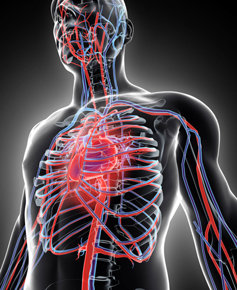Heroin’s Other Threats to Health and Life
Extremities:

The contaminants in heroin and the toxic effects of the drug can cause severe damage to blood circulation to and health of the extremities. As with lungs, tiny contaminants in heroin can block the flow of blood to hands and feet, resulting in gangrene.
A case report from Serbia described a heroin addict who was hospitalized for mental disturbances and difficulty breathing. His blood tests results were highly abnormal, showing infection and anemia. His basic blood chemistry showed a toxic situation resulting from a breakdown of muscle fibers. He was in danger of kidney failure. He was too deranged to permit the doctors to amputate his foot which was gangrenous. A month later after he had recovered to a more competent mental state, he agreed to the necessary surgery and lost his leg above the knee and part of the other foot.
Suicide:
A European report stated that about 10% of heroin addicts try to commit suicide over any 12-month period. It further stated that only about half of opiate addicts live longer than 20 years, once they become addicted. In Russia, the life expectancy is seven years or less.
Impaired Performance and Accidents:

Research from the National Highway Transportation Safety Board shows that inattentiveness, distractibility, slowed reaction times and other impairments are present for four to six hours after heroin use. Driving tests of people who had taken morphine or pharmaceutical-grade heroin showed that they drove slowly with poor vehicle control, they had poor coordination, reacted slowly when something happened in the environment and sometimes fell asleep at the wheel. These effects sometimes depended on how much tolerance the user had to the drug.
Blood-borne diseases:
Of course, one of the risks of anyone who injects drugs is the sharing of diseases through dirty needles. Most heroin addicts know about hepatitis C that can result in liver failure or liver cancer, and HIV that can result in AIDS. Tetanus is another disease that can be shared through a needle. As it kills a person, muscle spasms are so severe that muscles may be torn apart.
Now you know that heroin abuse brings serious, life-threatening risks far beyond a risk of overdose, although that is always present. Please help save the life of someone who may be abusing heroin or who might be considering it, by sharing this information with them. You could save them—and their loved ones—from years of suffering and loss.
Resources:
 ®
®